Space
Sign up for our newsletter
We summarize the week's scientific breakthroughs every Thursday.
-
 Planetary Science
Planetary ScienceHow to keep humans from ruining the search for life on Mars
As the race to put humans on Mars heats up, researchers worry they are running out of time to find life on the Red planet.
-
 Astronomy
AstronomyWhite dwarf’s inner makeup is mapped for the first time
The first map of the internal composition of a white dwarf star shows these stellar corpses contain more oxygen than expected, challenging stellar evolution theories.
-
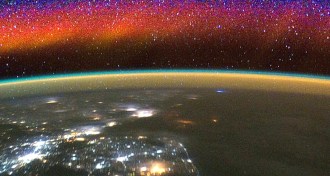 Planetary Science
Planetary ScienceNASA is headed to Earth’s outermost edge
NASA’s upcoming GOLD mission will study the charged border between Earth and space.
-
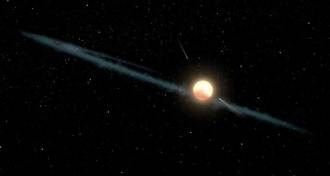 Astronomy
AstronomyAliens ruled out for why Tabby’s star flickers
The first real-time observations of Tabby’s star flickering put the final nail in the “alien megastructure” coffin.
-
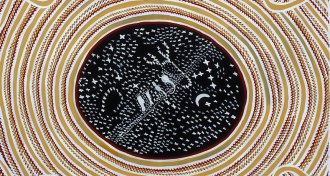 Astronomy
Astronomy86 stars get official names
The International Astronomical Union has released 86 newly official star names, based, in part, on historical star names from various indigenous cultures.
-
 Science & Society
Science & SocietyWatch our most-viewed videos of 2017
Cassini’s demise, cuttlefish and the Curiosity rover topped our list of most popular videos of 2017.
-
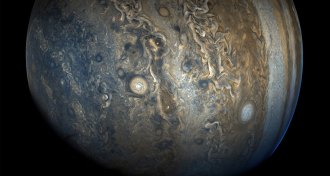 Planetary Science
Planetary ScienceHere’s what you might have missed in space this year
Missions to Jupiter and Saturn made big headlines, and 2017 also saw exciting updates from missions of years past.
-
 Physics
PhysicsThese 2017 discoveries could be big news, if they turn out to be true
Some findings reported in 2017 are potentially big news, if they hold up to additional scientific scrutiny.
-
 Astronomy
AstronomyNASA’s next stop will be Titan or a comet
The finalists for NASA’s next solar system mission aim to send a drone to Saturn’s largest moon or to return samples from a comet.
-
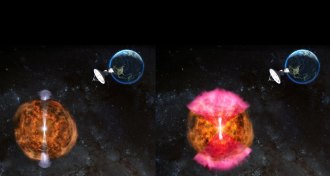 Astronomy
AstronomySmothered jet may explain weird light from neutron star crash
The neutron star collision whose gravitational waves were detected is still glowing in radio waves. The source of those waves might be a new phenomenon.
-
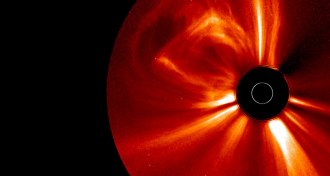 Astronomy
AstronomyThe sun’s outer atmosphere is far more complex than previously thought
The outer corona of the sun was thought to be smooth and uniform. New observations show it’s anything but.
-
 Astronomy
AstronomyOur first interstellar visitor may be a camouflaged comet
Originally thought to be a rocky asteroid, an interstellar traveler may have a comet’s icy heart.